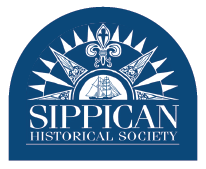 Of all the materials received by an archives, museum, or historical society, a diary can be among the most controversial to accept and accession. Occasionally containing the private thoughts, questions, confessions, ruminations, and activities of one who never intended for the diary to be made public, such a diary may require restrictions about when it can be viewed (e.g. a certain number of years after the author’s death), and by whom (family members only, for example). On the other hand, a diary may provide only the most routine details about a person’s life and times that, while quotidian and occasionally repetitive, can nevertheless contain glimmers of the unexpected.
Of all the materials received by an archives, museum, or historical society, a diary can be among the most controversial to accept and accession. Occasionally containing the private thoughts, questions, confessions, ruminations, and activities of one who never intended for the diary to be made public, such a diary may require restrictions about when it can be viewed (e.g. a certain number of years after the author’s death), and by whom (family members only, for example). On the other hand, a diary may provide only the most routine details about a person’s life and times that, while quotidian and occasionally repetitive, can nevertheless contain glimmers of the unexpected.
The 1875 diary pictured above, bound in black leather with “DIARY” embossed in gold on the flap, is a wonderful example of the latter. Beginning with January 1, and continuing faithfully through December 31, the author records first the weather and the wind direction, then gives a short synopsis of the day’s activities, beginning, “This day . . .,” often ending with the names of his evening visitors. “This day begins clear and pleasant.” “This day snow and rain and snow again.” “This day fogy (sic) and cloudy and now and then a sun shine, the wind from the South.” Many activities are repeated with regularity – “Cut a little wood, milked the cow and so forth.” Occasionally, the activities are even illustrated – can you spot the chicken above the Monday post about working on his hen houses?
A cursory glance through the diary might lead the reader to believe it contains only weather and activity reports. Yet the repetitive nature of the entries serves to highlight the occasional, noteworthy events. From mid-May through mid-June, one particular person – Barnabus Hiller – is mentioned frequently, often recorded as coming over “after milk.” On Wednesday, June 23, however, the author writes, “Barnabus Hiller was taken very sick this afternoon and had the doctor and had them again to knight (sic)” The post touchingly ends, “Went after him.” The next day, June 24, 1875, the author records that Barnabus Hiller died.
Successive entries begin with the weather conditions as usual, but also record that the funeral was performed by the “comandry” from the city of New Bedford and the Pythagorean Lodge. The entry on June 27 notes that “Mr. Hiller has gone and left us,” supplying emotional content that is absent from the author’s routine entries, and is therefore all the more poignant.
Accessioned in 1980, the diary is not signed and bears no identifying information; the accession note in our database lists the author only as “John Bates’ father.” Fortunately, our online database is a dynamic resource, and we update records as we obtain more information. Here is the current record; check back soon to see what new information we have added!
